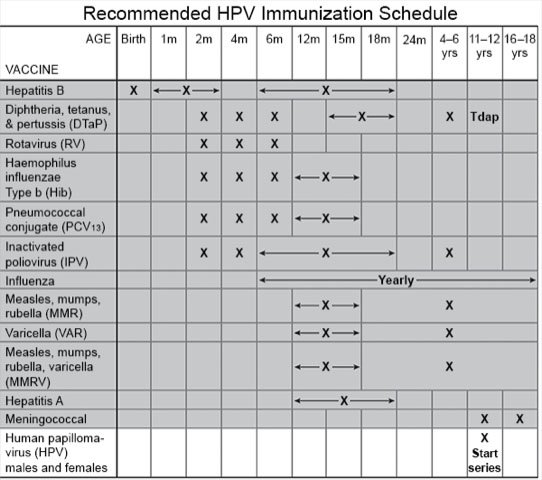Penile Cancer
Medically reviewed by Drugs.com. Last updated on Jun 5, 2024.
AMBULATORY CARE:
Penile cancer
forms in or on the penis. Most penile cancers are squamous cell carcinoma (SCC). SCC is a slow growing cancer that usually does not spread. Penile cancer can develop in males of any age but is most common in those 55 years or older.
 |
Signs and symptoms of penile cancer:
- A painless lump or skin lesion (sore) on your penis that does not heal within 1 month
- Redness, irritation, or a rash on your penis
- Pain or discomfort in your penis
- Swelling or redness on your foreskin if you were not circumcised
- Bleeding or a foul-smelling discharge from your penis
- A dull ache in the lower abdomen or in the groin
Seek care immediately if:
- You have sudden or severe pain or swelling in your penis, abdomen, or groin.
- You lose feeling in your penis.
- You have an open wound on your penis.
Call your doctor if:
- You have a fever.
- You have new or worsening symptoms.
- You have pain that does not get better after you take pain medicine.
- You have pain when you urinate, or you have trouble urinating.
- You have pain in your penis during sexual activities.
- You have questions or concerns about your condition or care.
What you need to know about penile cancer staging:
After cancer is found, your healthcare provider will use tests to find the stage of the cancer. Tests may include CT or PET scan, ultrasound, or x-ray pictures. Staging means your provider will assign a number. The number can help you understand if the cancer has or may spread:
- Stage 0 means abnormal cells were found on your penis. The cells may become cancer that spreads to other tissues. The cells may instead be squamous cell carcinoma that does not spread.
- Stage 1 means cancer cells have formed and spread to tissue just below skin surface. The cells have not spread to other parts of your body.
- Stage 2 means the cancer has spread to lymph nodes, blood vessels, nerves, or tissues in your penis.
- Stage 3 means the cancer has spread to lymph nodes in one or both sides of your groin.
- Stage 4 means the cancer has spread to other parts of your body. The cells may have spread to your scrotum or pubic bone. Other possible areas include lymph nodes in your groin or in or outside of your pelvis. Cells may have spread to areas such as your lung, liver, or bone.
Treatment:
Your healthcare provider will tell you the benefits and risks of each treatment to help you make decisions. For early stage cancer, your provider may recommend tests and follow-up visits to check for changes over time. The following may be used alone or together, depending on the type and stage of penile cancer you have:
- Medicines may be used to treat pain, swelling, or an infection.
- Ablation may be used to reduce blood flow to the tumor. Ablation may be done with radio waves, lasers, or light. Medicine may instead be injected near the tumor.
- Immunotherapy helps your immune system fight the cancer. Some forms of immunotherapy may help your immune system recognize cancer cells more easily. You may be given medicine as a cream to apply to your penis for several weeks.
- Chemotherapy is medicine used to shrink or kill cancer cells.
- Radiation therapy is used to kill cancer cells with high-energy x-ray beams. You may receive radiation therapy from outside your body or from small beads or rods placed inside your penis.
- Surgery may be used to remove the tumor. Some lymph nodes may also be removed to prevent the spread of cancer cells. Cryosurgery may be used to freeze and kill cancer cells. Circumcision surgery may be needed to remove your foreskin. If other treatments do not work or cancer keeps coming back, your provider may talk to you about penectomy. This is surgery to remove part or all of your penis. Your provider can give you more information about this surgery.
Manage or prevent penile cancer:
- Clean your penis each day. Use a mild soap, or the soap your healthcare provider recommends. Rinse with warm running water. If you were not circumcised, pull your foreskin back so you can clean the glans (head) of your penis. This will remove smegma from around the glans.
- Do not smoke. Nicotine can damage blood vessels and make it more difficult to manage penile cancer. Smoking also increases your risk for new or returning cancer. Do not use e-cigarettes or smokeless tobacco in place of cigarettes or to help you quit. They still contain nicotine. Ask your provider for information if you currently smoke and need help quitting.
- Talk to your provider about sexual activity. Your provider will tell you if it is okay to have sex before, during, or after treatment. Prevent sexually transmitted infections, such as human papillomavirus (HPV) or human immunodeficiency (HIV). Always use a condom when you have sex. A vaccine can help prevent an HPV infection if you are 26 years or younger.

- Have regular physical exams to check for cancer. Your healthcare provider can tell you how often to do this. Always have lumps, lesions, or skin changes on your penis checked by your provider.
- Reach or maintain a healthy weight. Your risk for penile cancer is higher if you have obesity. Ask your provider what a healthy weight is for you. Your provider can help you create a safe weight-loss plan, if needed. Eat healthy foods, such as fruits, vegetables, whole-grain breads, low-fat dairy products, beans, lean meats, and fish. Try to get at least 30 minutes of exercise 5 days a week, such as walking.
 |
Follow up with your doctor or oncologist as directed:
Write down your questions so you remember to ask them during your visits.
For support and more information:
- American Cancer Society
250 Williams Street
Atlanta , GA 30303
Phone: 1- 800 - 227-2345
Web Address: http://www.cancer.org
© Copyright Merative 2024 Information is for End User's use only and may not be sold, redistributed or otherwise used for commercial purposes.
The above information is an educational aid only. It is not intended as medical advice for individual conditions or treatments. Talk to your doctor, nurse or pharmacist before following any medical regimen to see if it is safe and effective for you.
Further information
Always consult your healthcare provider to ensure the information displayed on this page applies to your personal circumstances.
